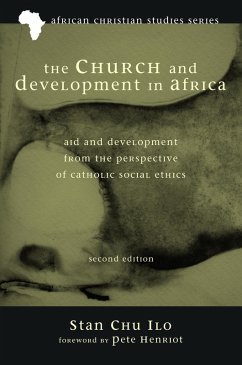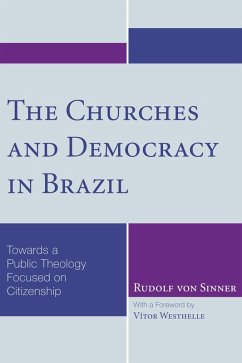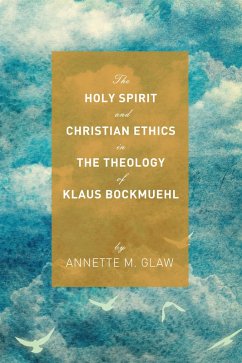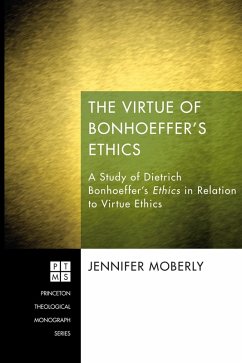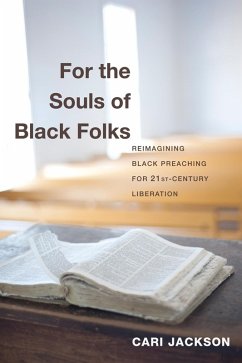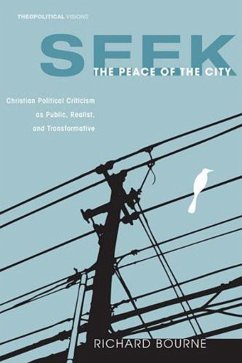
Peace and Violence in the Ethics of Dietrich Bonhoeffer (eBook, ePUB)
An Analysis of Method
Versandkostenfrei!
Sofort per Download lieferbar
13,95 €
inkl. MwSt.
Weitere Ausgaben:

PAYBACK Punkte
7 °P sammeln!
Not many theologians have had as great an impact on the study of peace and violence as Dietrich Bonhoeffer, who was labeled an Enemy of the State and eventually executed in April 1945. In this book, Trey Palmisano examines the theological connection between peace and violence across a range of Bonhoeffer's writings, sermons, and letters. Despite the challenges Bonhoeffer experienced in his personal life and in the life of his country, Palmisano asserts that a strong consistency emerges in Bonhoeffer's approach to ethics that resonates in the positing of Christ as the center of all ethical disc...
Not many theologians have had as great an impact on the study of peace and violence as Dietrich Bonhoeffer, who was labeled an Enemy of the State and eventually executed in April 1945. In this book, Trey Palmisano examines the theological connection between peace and violence across a range of Bonhoeffer's writings, sermons, and letters. Despite the challenges Bonhoeffer experienced in his personal life and in the life of his country, Palmisano asserts that a strong consistency emerges in Bonhoeffer's approach to ethics that resonates in the positing of Christ as the center of all ethical discourse and orients one to the ever-present challenges of a changing world. Palmisano creates distance from former studies that sought to define Bonhoeffer as a committed pacifist, a situational pacifist, or one who compromised his values to accommodate an exception for violence. By prioritizing methodology as the key to interpreting Bonhoeffer's thought, Palmisano argues that the ethical dilemma thought to be caused by Bonhoeffer's actions is avoided. The result is one that creates an authentic ethical openness by responsiveness to Christ rather than Christian virtue, and frees the individual from redundancies of action derived from deeply embedded patterns of theological engagement.
Dieser Download kann aus rechtlichen Gründen nur mit Rechnungsadresse in A, D ausgeliefert werden.





